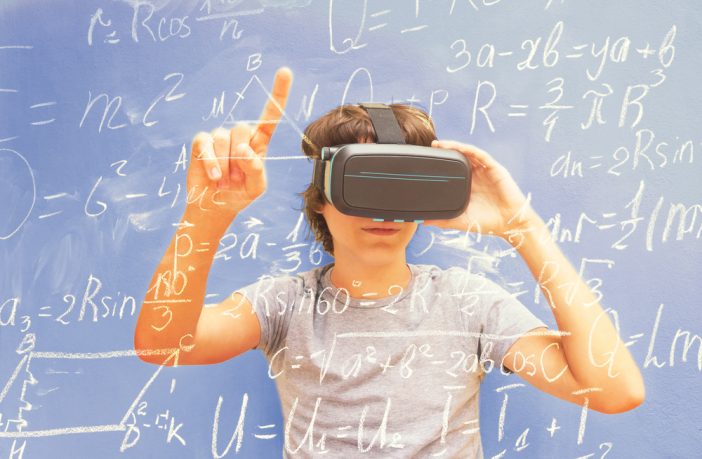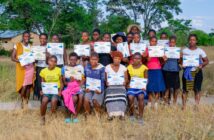An article by Professor of Learning Technologies and Social Computing at The Open University (OU), Shailey Minocha.
Mobile technologies and apps have become integral to our lives and have potential to play a role in education. Without embracing these technologies in learning and teaching, we will be doing the next generation and future workforce a disservice. Our Google-funded project investigates the role of Google Expeditions, a mobile virtual reality (VR) application, in science and geography school education.
This app has over 700 virtual field trips, ranging from the Great Barrier Reef to London’s Olympic Park. With a smartphone and a simple virtual reality viewer such as the Google Cardboard, students can visit places all over the world.

Professor Shailey Minocha
The research project involved 549 students from years 4 to 11 across 24 lessons in UK schools. We interviewed science and geography teachers, fieldworkers, curriculum experts and academics to examine the role of mobile VR, and educational technology in general, in learning and teaching.
Our initial research has highlighted a number of challenges and solutions around integrating technologies in learning and teaching in schools:
Reducing teacher workload
Reducing teacher workload is clearly on the Government’s agenda, as their new toolkit demonstrates.
Whilst this may happen once the technology is embedded in the classroom, workload will increase initially. It takes time to implement it; to choose technologies that fit within the curriculum; to design activities and teaching that blend with the strategies used in lessons; and to evaluate the impact technology has on student learning and engagement.
“It is vital that Higher Education institutions conduct research on technology use in schools such as the research we do at the OU. They should involve school teachers as co-researchers, keep them informed of the research outcomes, or provide evaluation tools to them.”
A research-informed teacher will drive technological innovations in their lessons much faster and with greater confidence, and they would avoid being swayed by the technology manufacturers. Ideally, universities should work with local schools to help them design, implement and evaluate technology-led initiatives and innovations that have a real impact on student learning.
Continuing professional development of teachers
This Wellcome Trust study: Solving the STEM shortage: CPD improves science teacher retention and the House of Commons’ Education Committee report: Recruitment and Retention of Teachers acknowledge that lack of resources such as time, travel funds, and lesson cover are some of the obstacles preventing teachers from attending CPD programmes. Without supporting adequate CPD opportunities, it is hard to retain good teachers.
We believe that open educational resources such as Massive Open Online Courses (MOOCs) could help teachers complete CPD. MOOCs that last one to two hours would be less resource-intensive than an away-day training programme, and teachers can revisit them to revise and reflect. MOOCs could help to upskill teachers in several areas, including digital skills, exploring other methods of teaching, ways to integrate technologies in learning and teaching, and evaluating the impact of technologies on student learning and engagement. Participating in MOOCs could also encourage teachers to share their learning within their school and beyond.
“Extra resources should be provided to teachers”
A number of resources are needed to embed technologies in schools. Schools need procurement support, to set up ICT infrastructure including a fast, secure and stable Wi-Fi service, and have full-time IT support staff on the site.
In summary, although we welcome the recent announcement by the Education Secretary about technology-led learning, teaching and assessment in schools, several barriers would need to be overcome for school leaders and teachers to embed technologies in the curricula.



